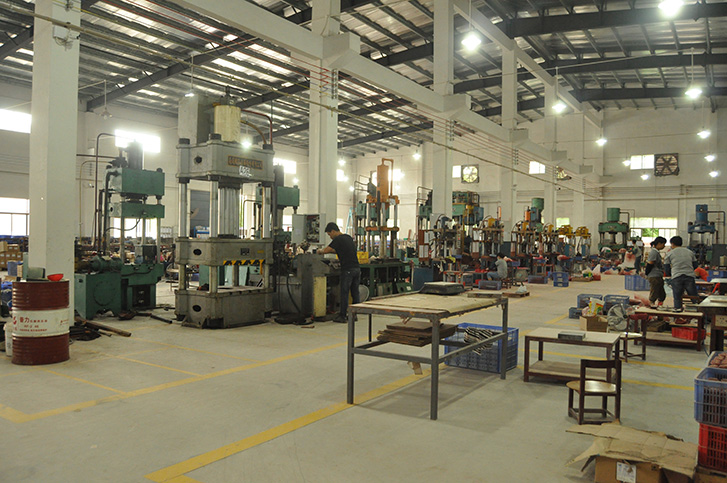BMC molding compound bulk molding compound has excellent electrical properties, mechanical properties, heat resistance, chemical corrosion resistance, and can adapt to various molding processes to meet the performance requirements of various products. Therefore, it is increasingly favored by a wide range of users.
BMC molding compound is a thermosetting plastic that is mixed with various inert fillers, fiber-reinforced materials, catalysts, stabilizers, and pigments to form an adhesive used for compression molding or injection molding; Oil gray state; Composite data. BMC molding compound is highly filled and reinforced with short fibers, with glass fiber reinforcement accounting for 10% to 30%, and typically ranging in length from 1/32 inch to 1/2 inch (12.5mm).
According to different final application fields, the manufactured composite materials can accurately control the scale, have excellent flame retardancy and resistance to electric traces, have high dielectric strength, corrosion resistance, and stain resistance, outstanding mechanical properties, low shrinkage, and stable color. BMC molding compound has good activity characteristics, insulation and flame retardancy, and is very suitable for various applications that require accurate details and dimensions. There are 75 colors to choose from, which can withstand powder spraying or water-based coatings.
Property: A clustered prepreg made by mixing short cut glass fibers with unsaturated polyester slurry. Suitable for molding using processes such as compression molding, transfer molding, injection molding, etc., the products produced have outstanding mechanical properties, high dimensional stability, good surface smoothness, excellent water resistance, oil resistance, corrosion resistance, heat resistance, excellent electrical performance, especially arc resistance that can reach about 190s. According to the formula, the resin slurry is prepared by mixing the resin slurry with short cut glass fibers (approximately 3-25mm in length), with the main component being the same as the sheet molding material and an increase in fillers. Generally, thickening agents are not necessary. Mainly used for electrical appliances, motors, radios, instruments, machinery manufacturing, chemical equipment, construction, transportation, national defense, and other parts.

1. General performance: The proportion of BMC molding compound (DMC) is relatively high, between 1.3-2.1; The product has a bright appearance, good hand feel, and a hard and heavy feeling; Heating with fire will produce a lot of oil fumes and have a styrene smell; Some types of BMC molding compounds (DMC) are difficult to burn, but others are easy to burn, leaving behind inorganic substances after burning.
2. Scale stability: The linear expansion coefficient of BMC molding compound (DMC) is (1.3-3.5)× 10-5K-1, which is smaller than typical thermoplastic plastics, makes BMC molding compounds (DMC) have high scale stability and precision. The temperature has little effect on the scale stability of BMC molding compound (DMC), but the influence of humidity is more severe. BMC molding compound will swell after absorbing moisture. The line expansion coefficient of BMC molding compound (DMC) is very close to that of steel and aluminum, so it can be compounded with them.
3. Mechanical strength: BMC molding materials (DMC) have higher tensile, flexural, and impact strength properties than thermoplastic materials, and also have better creep resistance than thermoplastic materials. www.jmlicheng.com
4. Water and solvent resistance: BMC molding compounds (DMC) have excellent corrosion resistance to water, ethanol, fatty hydrocarbons, oils, and fats, but are not resistant to ketones, hydrochlorohydrocarbons, aromatic hydrocarbons, acids, and bases. BMC molding compound (DMC) has a low water absorption rate, and its insulation performance remains good even after soaking for one day.
5. Heat resistance: BMC molding compound (DMC) has better heat resistance than general engineering plastics, with a heat deformation temperature (HDT) of 200-280 ℃, and can be used for a long time at a temperature of 130 ℃.
⒍ Aging resistance: BMC molding materials (DMC) have excellent aging resistance, and can be used indoors for 15-20 years. After 10 years of outdoor exposure, their strength retention rate is over 60%.
7. Electrical performance: BMC molding compound (DMC) has outstanding arc resistance, which can reach about 190 seconds.
Low odor: The styrene crosslinking agent used in BMC molding compounds (DMC) will still have a residual 0.1% after curing, and will emit a foul odor when heated. Therefore, BMC molding materials (DMC) used for food utensils (such as microwave tableware) should use UP resin without residual styrene monomer.

